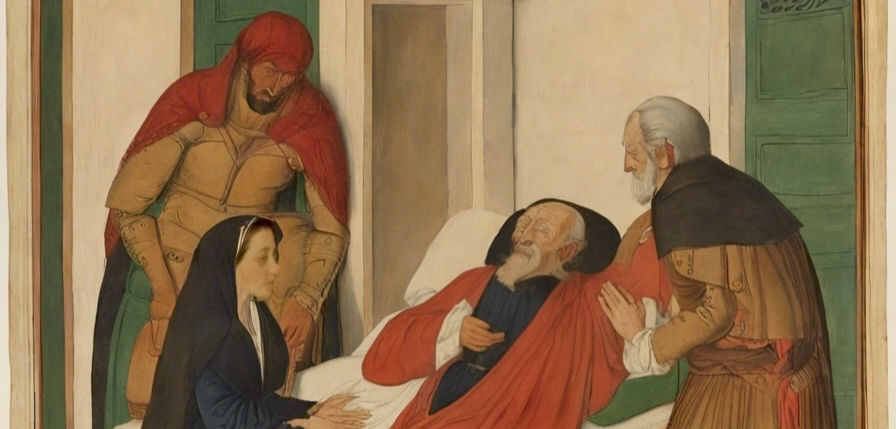The Man and His Three Children
- catholicindulgence
- Sep 6, 2025
- 3 min read
Updated: 3 days ago

There was a man upon his death bed, who received a visit from his three grown children. These three children promised that once he passed, they would offer indulgences for him to eliminate his time in purgatory. In the middle of the night the man died and indeed entered purgatory, where the angels observed his case.
The next morning, upon hearing of their fathers death, the children each hurried to obtain a Plenary indulgence for their father like they promised. Traveling together, they all completed the requirements for a plenary indulgence. They received communion together at the same Mass, did the work required for their indulgences together, they a prayed for the intentions of the pope together, and they sought out confession together… they fulfilled all the conditions together. And all of them offered their indulgence for their father.
Returning home, each of the children felt certain that their indulgence had been received by their father. But the angels looked on, observing what actually happened. Remember, since only one Plenary indulgence is needed to help release a souls from purgatory, not all 3 plenary indulgences could possibly have be received by their father. So whose indulgence aided the man into heaven?
The angels observed that: One of the children, all though she had completed the outward requirements for a Plenary indulgence, clung to some of her sins. She was not detached from them. By this she did not receive a Plenary indulgence, but rather a partial indulgence, since even though she was attached to her sin, she was nonetheless contrite of heart.
The angels observed that: The two other children did receive a Plenary indulgence each. The first of the sons, out of love for his father, and the desire to help, eagerly made sure to fulfill the conditions swiftly, and was the first in line to receive the sacraments. This child received his indulgence first, and therefore offered it for his father first, followed by the second son. But, even in his eagerness, this first son's indulgence was not received by his father. Nor was the second son's indulgence.
The angels observed that: Shortly after the father had died, while it was still night and his children slept, the morning was beginning far off, on other side of the world. Here, from the heart of someone whom this family never knew, was a plenary indulgence offered for ‘some poor soul in purgatory’. That is the indulgence that Christ saw fit for this father to receive.
What is the moral of this story?
As we learn more about indulgences, and how we can offer them for the departed, I have observed a pattern. Many people, including myself, often want to offer indulgences for their departed loved ones. This is a wholesome desire, but many times I've seen this desire become so great that it is taken to a fault.
For example, in an effort to 'direct' an indulgence, some people have tried to offer repeated plenary indulgences for the same person, or they have done an indulgence wrong. (An example would be by praying in front of a picture of a loved one instead of going to a cemetery, because their loved one is not buried in that cemetery.)
In these instances, where we desire so deeply to help our loved ones, we need to remember that Christ loves them (and us) more than we could ever love anyone. We need to trust in him, and in his decisions of how indulgences will be dispensed and rely less on our own power to direct our indulgences. Certainly, we may pray especially that Christ will see fit for our indulgences to be given to our loved ones, but let us not make that desire into a stumbling block. Let us trust in Christ, and let us remember especially that all souls in purgatory are in our communion of saints, and therefore are also loved ones to us whom we simply haven't met.




Comments